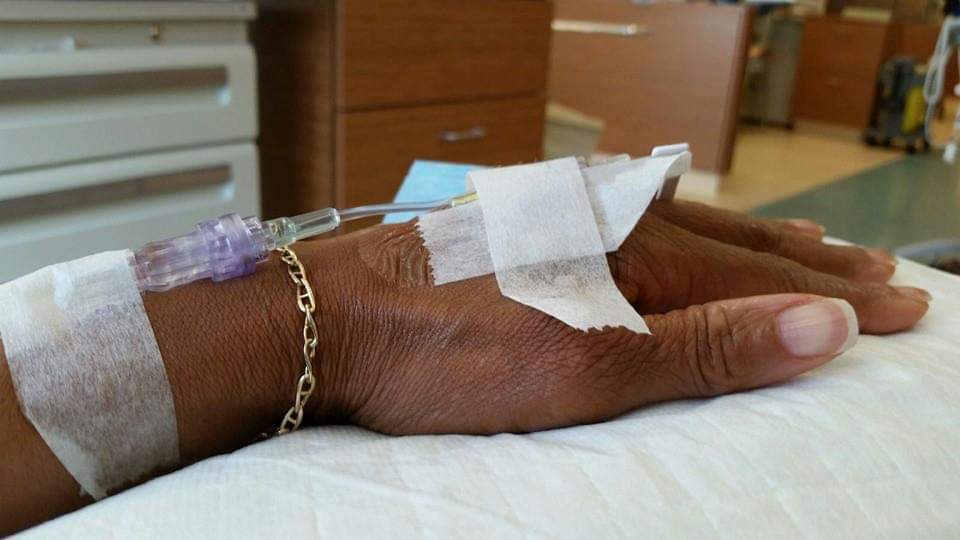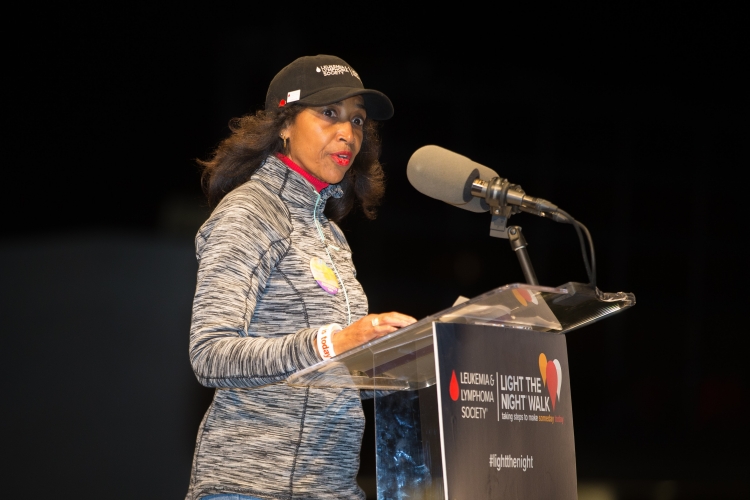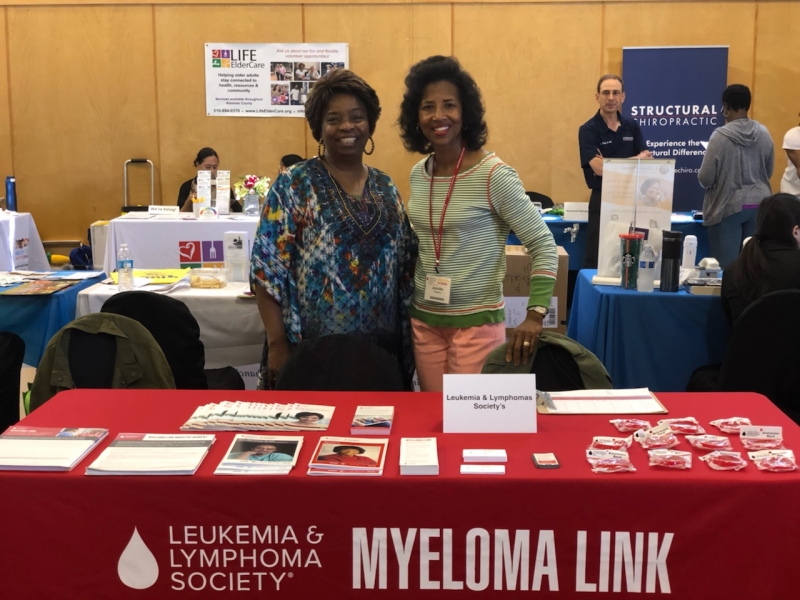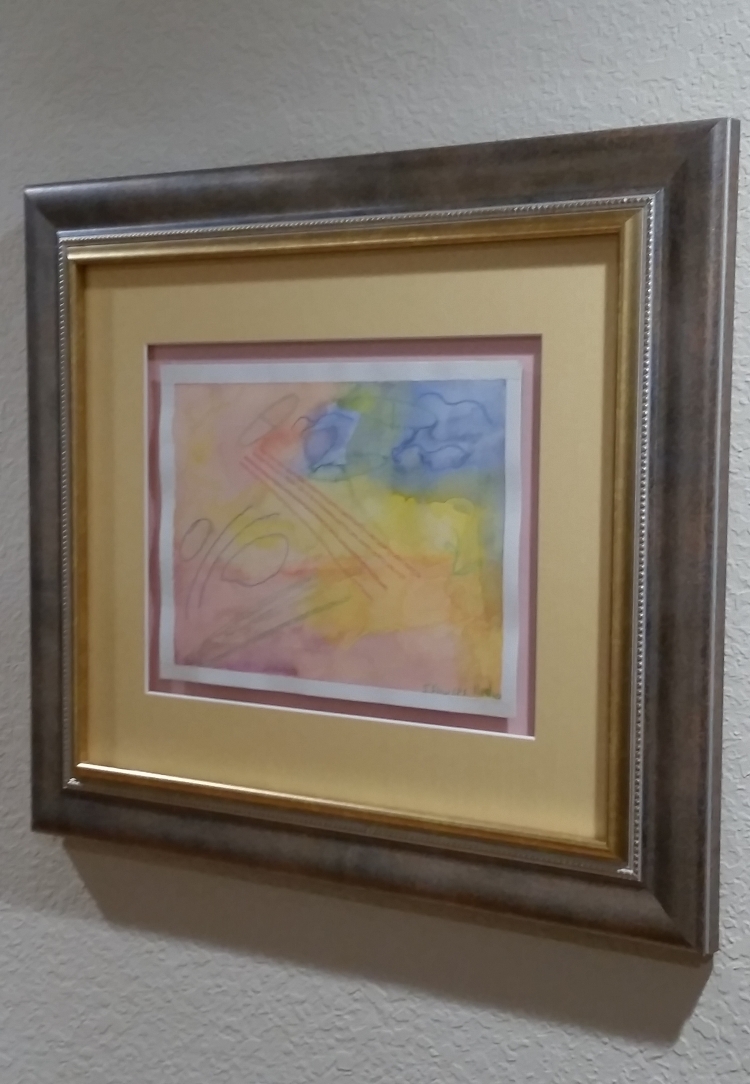
In honor of Myeloma Awareness Month in March, The Leukemia & Lymphoma Society (LLS) is shining a light on how we champion myeloma cures and care. For Jennifer Flowers, who was diagnosed with multiple myeloma in 2008, our free education and support services and the powerful sense of community at our Light The Night events have made all the difference. Motivated to help other blood cancer patients and families, Jennifer has held several volunteer roles with LLS, including serving as an Honored Hero, Light The Night Leadership Committee Chair and Lead Team Captain, and a Patti Robinson Kaufmann First Connection Program Volunteer.
Today, Jennifer generously gives her time and talent to our Myeloma Link education and outreach program. Black Americans have twice the incidence of myeloma as white Americans and are less likely to have access to timely, optimal treatment and care. Together with our staff, volunteers, and supporters, LLS is dedicated to changing this. Offered in 13 cities across the country, Myeloma Link directly connects Black patients and caregivers with trusted, free myeloma information and support, as well as treatment and care. Since its inception, the program has reached nearly 30,000 individuals.
Recently, we had the opportunity to catch up with Jennifer on her cancer experience, commitment to giving back, and advice for patients and families.
As a volunteer, you’ve helped raise critical awareness and funds by sharing your powerful story and connecting with other patients and families. Can you take us through your cancer experience – before, during, and after your diagnosis and treatment?
Before I was diagnosed, I had been experiencing tiredness and pain in my left pelvic area that led me to seek medical attention. My diagnosis came during an especially tough year for my family. In the first part of the year, my mother was diagnosed with non-Hodgkin lymphoma. In the second part, my father was diagnosed with metastatic colon cancer. And in the third part, I was diagnosed with multiple myeloma. As a young, health-conscious, professional woman who exercised four times a week, I was stunned by my diagnosis. But with faith and support from family and friends, I summoned all my strength for the fight of my life.
After I was diagnosed, I endured multiple rounds of chemotherapy for a year. I then had an autologous stem cell transplant where my own stem cells were harvested and reintroduced into my body on January 8, 2010. This date is my second birthday. Receiving the transplant granted me a second chance at life. It saved my life, but it also threw me into the scariest part of my entire cancer experience. This resulted in an extended hospital stay followed by radiation treatments.
During my treatment, I experienced side effects like bone pain in my left hip and pelvic area. Currently, I am in remission and take a maintenance drug every other day because there are still traces of the multiple myeloma in my body. I also still experience bone pain from time to time.

How did you first learn about LLS, and what inspired you to begin your volunteer journey with us?
While visiting a senior center in August 2010 during my recovery, I saw a flyer from The Leukemia & Lymphoma Society promoting its Light The Night walk in October 2010. I was touched by the fact that all donations raised would be assisting people with blood cancers – people like me. LLS helped me from the beginning of my journey when I met the patient services team. They introduced me to support groups where I talked to people just like me who knew exactly what I was up against. Also, LLS provided me with booklets and gave accurate, up-to-date disease, treatment, and support information. That year, I made a commitment to become and remain actively involved with LLS and Light The Night in the Greater Bay Area.

Tell us about your involvement with Myeloma Link, and what makes this volunteer role so meaningful for you.
In December 2018, I became a Community Outreach Volunteer with LLS’s Myeloma Link initiative. Myeloma Link is currently available in 13 cities across the United States. The program connects African American communities to information, expert care, and support to improve the quality of life of African Americans living with myeloma. This is especially important because African Americans are less likely to receive the newest treatments and more likely to experience treatment delays, including transplant delays. I work with a team of volunteers and staff who educate African American communities in Oakland, Calif. As outreach volunteers, we are responsible for building relationships with people in the community and planning myeloma education programs. We hold Myeloma Sundays where we visit churches, participate in health fairs, and host healthcare provider-led education programs in collaboration with senior centers and community health centers. Because of the pandemic, we are conducting programming virtually to safeguard patients’ health and well-being. Additionally, we provide a directory of local resources for individuals with myeloma and connect patients and caregivers with LLS Information Specialists – highly trained oncology professionals – to answer questions about the disease and treatment. We also connect patients to optimal care with additional support.

How has your cancer experience changed your outlook on life?
This difficult journey has changed my outlook on life by elevating my faith, encouraging me to make healthy living choices to prevent future health problems, and acknowledging my concerns about my cancer experience. This is a chronic condition with increased risks for recurrence. The hospital offered an art therapy program, where I learned to channel my anxiety through the strokes of a paintbrush. The description of my painting became my motto: “FAITH IS POWER – A GROWING FLOWER.” This statement reminds me, no matter what obstacles I may encounter, I must diligently stay the course, savor each moment, embrace all life has to offer, and celebrate the joys of every day.

What advice would you have for anyone dealing with myeloma during the pandemic or otherwise?
The advice I would have for anyone dealing with myeloma during this global pandemic would be to stay encouraged and know that you are not alone. If you need assistance, please don’t hesitate to reach out to LLS for support. Remember, we are better together!
LLS is a champion for myeloma patients and their families. Learn more about the wide array of free education and support we provide here. To explore volunteer opportunities or get the most out of your volunteer experience, please visit LLS’s Volunteers in Action (VIA).
